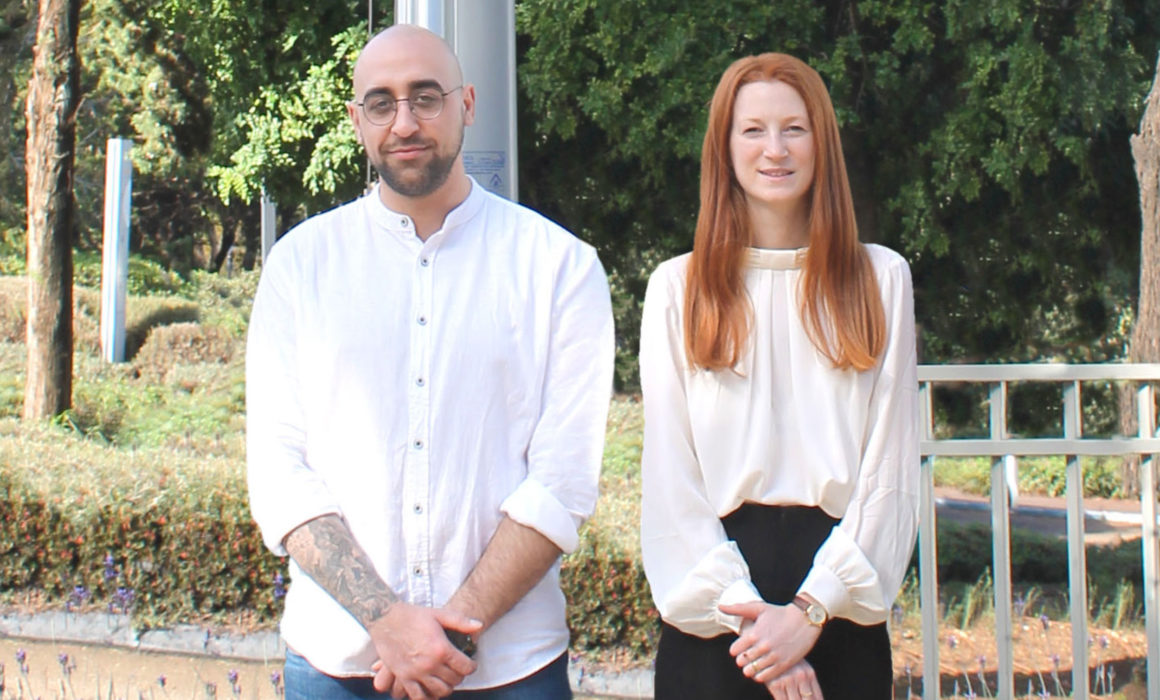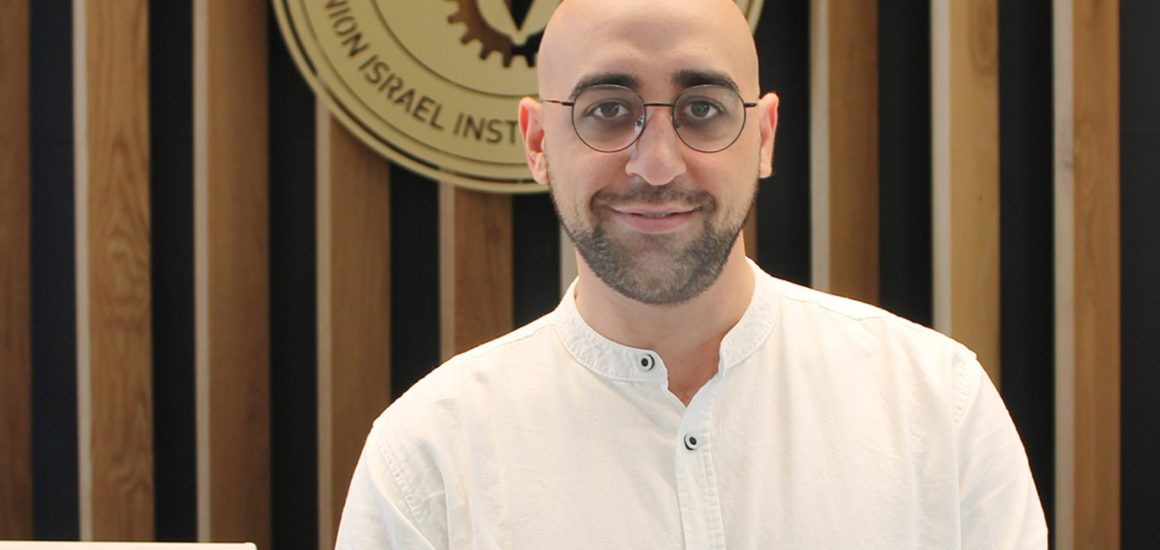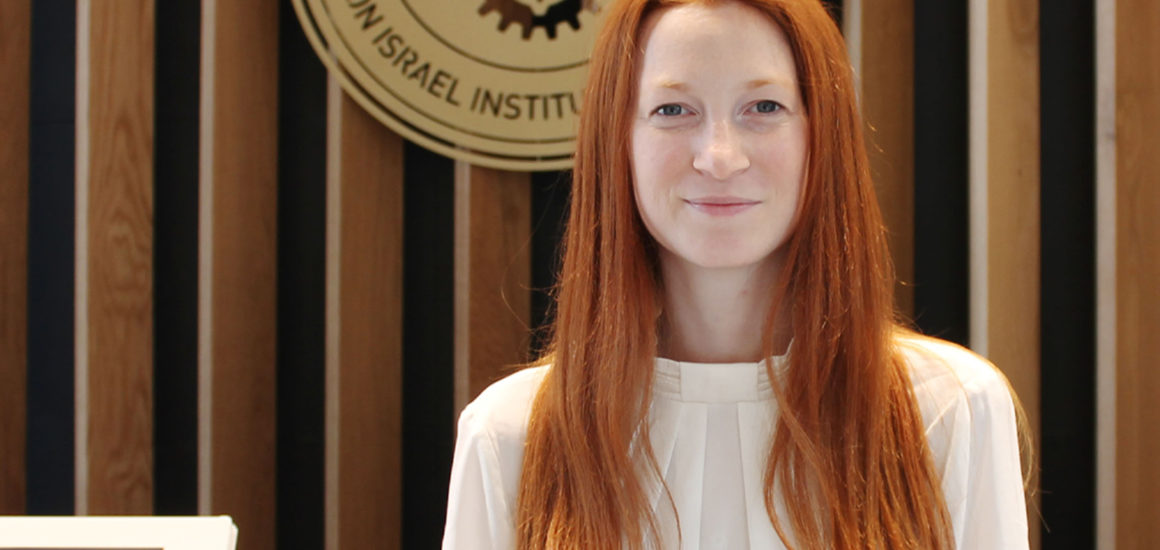“I grew up mostly with my mom, mostly learning how to survive. I got an education at home, but I also got an education with my friends,” said Sean Meir, an undergraduate student in the Technion’s Henry and Marilyn Taub Faculty of Computer Science who expects to graduate in May 2020. “They did horrible stuff, stuff that I’m not proud of. Most of them have criminal records.” Meir grew up in Nof HaGalil, an underserved community in Israel’s periphery.
His life could have taken a different trajectory, one similar to his childhood friends’, but he was given a fresh start through the Velva G. and H. Fred Levine Second Chance Program at the Technion’s Center for Pre-University Education. He shared his story with American Technion Society (ATS) supporters during a speaking tour in the U.S. with fellow students, including Neta Blum.
Blum’s life couldn’t have been more different. She grew up in suburban Maryland, the daughter of a cardiologist and Technion grad himself. Returning to Israel at age 17, Blum attended the Brakim excellence program, a joint initiative of the Technion and Israel Defense Forces (IDF) that combines a Technion education, bachelor’s and master’s degrees in mechanical engineering in only four years, with military service. Today, she is carving out a career in academia as a Technion Ph.D. student in the Faculty of Aerospace Engineering and conducting R&D in the Israeli Ministry of Defense. Her work just earned her a place on Forbes Israel’s “30 Under 30” list, marking her as a young influential leader who will change the future.
Despite their different upbringings, Blum and Meir share a commonality: Technion programs have afforded them opportunities to transform their lives for the better. Now they’re paying it forward by inspiring and mentoring the next generation of Technion students.
For Meir, being recruited to the Technion’s pre-university program as he finished his military service was the chance of a lifetime. The rigorous program is aimed at helping students from underprivileged or nontraditional backgrounds gain the academic foundation they need to succeed at the Technion. Israel’s first Haredi-educated doctor, Yehuda Sabiner, is one of the many notable graduates of the program.
After one semester of high grades in the Faculty of Math, he was able to transfer to the more challenging Faculty of Computer Science. Meir’s experience at the Technion has inspired him to launch his own startup after graduation.
Attending the Technion is a life-changing experience. When you grow up in a neighborhood like I grew up in, you think that the Technion is not for people like us.
Meir is helping to change that, one conversation at a time.
Once a month, he goes back to Nof HaGalil to talk to kids who think, like he once had, that the Technion isn’t for them. He also speaks to young soldiers about to be discharged from the army and encourages them to think about the Technion as they plan for their post-IDF futures.
In addition, Meir joined the Technion Student Association (TSA) to give back to the pre-academic program that helped him so much. Today, he serves as the program’s academic coordinator, helping students with social, academic, and administrative issues.
Graduating from Brakim allowed Blum to choose from some of the best leadership positions in the IDF. She’s now the head of the aviation technology department at the Ministry of Defense’s Directorate of Defense Research and Development, earning the distinction as the first woman and youngest person ever in this position.
Alongside her demanding work with the Ministry of Defense, she is finishing her Ph.D. research investigating the validity of Saint-Venant’s principle (SVP), a tenet of structural mechanics that examines stress distribution of forces on elastic materials. Blum is exploring how the principle works in soft biological tissues. She hopes her research will help physicians diagnose and treat cancer and cardiovascular diseases more effectively in the future.
Every day through my research and service, I wake up knowing that I am doing something for a bigger cause,” she said. “I’m driven because I know what I am doing is helping Israel. And the Technion is a big part of that.
She’s also paying it forward for the next generation. In Brakim and in her work at the Ministry of Defense, Blum was often the only woman in the room. She is determined to change that. She began by visiting high schools across Israel, encouraging young girls to go into science, technology, engineering, and mathematics (STEM) fields. The success of those visits spurred her to launch At (Hebrew for “you,” feminine), which recruits the best female tech leaders in Israel — women from Google, Microsoft, even scientists from the Technion — to encourage young girls all over the country to pursue careers in STEM.
Blum and Meir are shaping Israel’s future through their academic and professional contributions — as well as volunteering to mentor the next generation of Israeli scholars and leaders. It’s a story that is quintessentially the Technion, and it is happening every day across campus.




